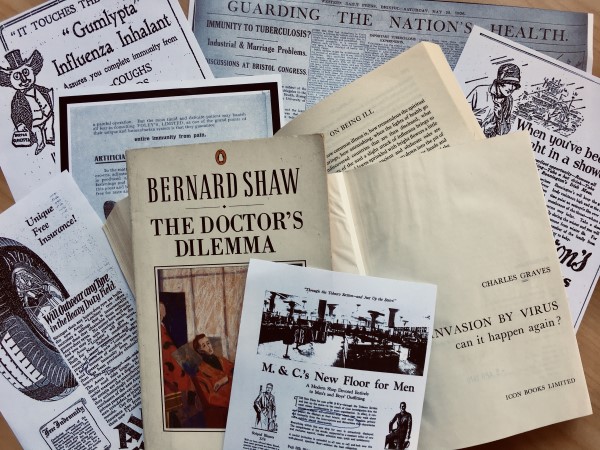Shared immunity: poetic and political

Dr Maebh Long, University of Waikato, will explore how modernist writers fused and developed political and medical metaphors of immunity. Her transnational analysis will allow her to develop a new framework for research on literary and cultural responses to medical and political threats, including the current COVID-19 pandemic
From the mid-nineteenth century, as knowledge of invisible germs panicked and fascinated the public, scientists borrowed the word ‘immunity’ from political spheres to illustrate the body’s resistance to disease. For lay people coming to understand the presence of the microbial, the modern world appeared rife with invisible threats. However, advances in immunology assuaged these fears and gave the public the reassurance of bodily defences. The medical metaphor began reshaping political uses and political ideas became steeped in images of protection from ideological contagion or threatening groups.

Immunity literature. Photo supplied
Dr Long will identify and analyse the innovative ways modernist writers responded to anxieties of anticipated harm. She will develop a poetics (theory of literary discourse) of immunity, explaining how modernist writers fused and developed these medical and political metaphors that evoked ideas of protection, resistance and improvement. She will undertake a transnational analysis of a poetics of immunity within modernist texts from Britain, Ireland, New Zealand and Australia. This analysis will explore the ways poetics arise from the movement of power and influence across interconnected countries. This will include an examination of the conjunctions between a poetics of immunity and island nations’ imagery of self-containment, isolation and impenetrability.
This research will use modernist experiences to throw light on public responses to COVID-19’s quarantines, unemployment, anticipatory grief and death. It will provide an interpretative model that researchers from different fields can draw on when analysing future medical events and crises.
